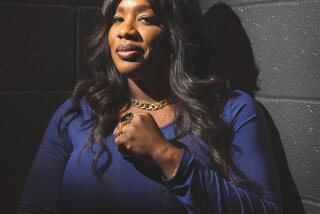Movie review: ‘Declaration of War’
War, by its very nature, doesn’t give you weekends or nights off. There may be time between assaults, but the momentary cease-fires are unpredictable at best. So it is in “Declaration of War,” a vibrant and heartfelt French film that captures the mood and the memories of young parents who found themselves in the trenches fighting for the life of their child.
Though the names have been changed, this is a very personal story for the very personal filmmaker Valérie Donzelli, who directs, co-writes and costars with Jérémie Elkaïm. It is a fictionalized version of the real-life battles they waged against the cancer that threatened their infant son Gabriel and how that time tore at their relationship.
This might have been too dreadfully sad if Donzelli weren’t involved, but there is a sort of effervescence to her work that sweeps you up. As with her first film, 2009’s “The Queen of Hearts,” which turned her struggle with depression into a dramatic musical comedy, this too has a whimsical touch and a song. It doesn’t mean she doesn’t take things seriously, just that she chooses not to cut so deep as to lose sight of the amusements and ironies that surface in even the darkest times.
The film is told in flashbacks so that you know that the baby survived, which actually allows you to experience their wartime without that shadow of fear that it will all end badly. For the couple, it is love at first sight at a packed party, when Romeo (Elkaïm) and Juliette (Donzelli) lock eyes across a crowded room, a moment broken only by her laugh and his smile when the peanut he tosses in her direction lands in her mouth. They are beautiful and playful, so entranced with each other it seems as if nothing can penetrate their world, including adulthood.
Then Adam arrives, and nothing goes as they expected. He cries for hours on end, and soon whatever they thought they had with each other is harder to find, with 18-month-old César Desseix as young Adam a born heartbreaker with old soul eyes (Gabriel plays Adam at 8). With this, the story settles into the grim rituals that come with any disease, the round of doctors before you know exactly what fate has dealt you, the way complaints about a crying baby are dismissed. It takes months before anyone really listens, and when the diagnosis comes, it is deadly. Time slows and life is lived in hospitals.
The filmmaker is clearly interested in exploring how crisis changes us, what it demands and how we react. The different ways in which Romeo and Juliette cope with Adam’s situation, the frictions that arise with their families, the way in which relative strangers feel compelled to weigh in, is mined here in often unexpected, and comical, ways.
Though it’s tempting to think that there is little acting involved because the film hues so closely to Donzelli and Elkaïm’s experience, that would be unfair to the lovely performances they deliver. If anything, when something hits so close to home, it requires a measure of control to find the right balance for the character within that moment, and they do. This is a self-referential but not a self-indulgent film.
The tone is a result of the kind of freedom the filmmaker encourages -- at times it’s as if she’s told director of photography Sébastien Buchmann, “just have fun with it.” There is a mix of dialogue and voice-over narration -- someone else occasionally chiming in to offer an opinion or an assessment.
The line between real and surreal is often crossed, perhaps never better than after getting bad news Juliette turns to walk away, alone, dejected, until something breaks and she starts running down the hospital corridor. The film speeds up too, capturing the movement in frenetic ways so that you sense the frustration and the fight vibrating through every frame.
More to Read
The biggest entertainment stories
Get our big stories about Hollywood, film, television, music, arts, culture and more right in your inbox as soon as they publish.
You may occasionally receive promotional content from the Los Angeles Times.











